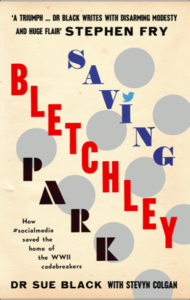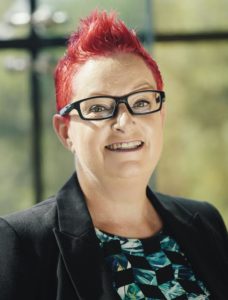
Book ‘Saving Bletchley Park’ is social media for good story
This story was first published by our Founder and Director Lisa Devaney with Brand Republic’s The Wall Blog UK, and you can find it here, or read below:
So often these days, news headlines are pock-marked with nasty tales of hacking incidents, online trolling, bullying and abuse that are setting a lot of people off from participating with any social media platform. But now and then, examples of how fantastic, caring and beneficial social media can be comes into public awareness and forces us to not ignore the good of this medium for all.
In a new book Saving Bletchley Park written by Dr Sue Black OBE (@Dr_Black), with help from Stevyn Colgan, a fascinating story is told about how Twitter, and the power of digital and social media, strengthened and was instrumental in saving a near derelict World War II codebreakers headquarters at Bletchley Park. Recently released, and funded fully through a crowdfunding campaign orchestrated by the publishing company Unbound, the book is already a bestseller on Amazon.
If you are looking for that ray of sunshine in your social media case studies, or just want a positive example to explain to colleagues about how social media can work, this is a must read. I marvelled that it is a tale where old technology is saved by new technology, where modern Twitter, and other social channels, play a crucial role in helping preserve the place where modern computing took root, being the birthplace of Colossus and the work base of Alan Turing, who was key in cracking the codes generated by the Enigma machine.
In the book, the author shares so much about the step-by-step evolution of this valiant and dedicated effort of her, and colleagues, years of work to make sure it was not eradicated physically from the UK’s places of historic interest. Hundreds of people sought to preserve Bletchley Park over 20 years. It is likely that many in the UK, and beyond, will know that Bletchley Park is credited for having brought World War II to an end, two years earlier than expected, and to have saved an estimated 22 million lives with the top secret work of codebreaking. Nearly 10,000 people worked in cloaked roles, many being women, and all signed and sworn to a strict secrets act preventing them from speaking about their labour at the place. Sir Winston Churchill said of the codebreakers that they were “the geese that laid the golden egg and never cackled.”
What many may be surprised to learn is how decayed and near demise the site of this crucial turning point for the war was facing not long ago, until its rescuers became activists for the historic venue’s survival. What Dr. Black’s book reveals is a combination of historic information, human anecdotes, and a really good case study for how social media can flip a forgotten relic into public consciousness, over time.
Along the way, Dr Black, using Twitter, along with blogging and other social media channels, found that the digital generation’s freely available tools could help her make people care, and do something to save Bletchley Park. In her tale, you’ll read about how some of the UK’s popular Twitter aficionados like Christian Payne (@documentally), Jamillah Knowles (@jemimah_knight), Mike Sizemore (@sizemore), the Tuttle Club, and more, played a role in raising awareness for the Bletchley Park cause. So much so, that the effort won the attention of celebrity Stephen Fry and, also attracted support and attention from various members of the Royal family, and executives from Google.
Sure, social media wasn’t the only contributing factor, but, as you will find out in the book, it was a major catalyst and turning point for the campaign. The book includes Dr. Black’s tips and real-life, reality based, proven approaches to using social media, and her own journey from intrepidation and low confidence with the medium, to being a fearless advocate of its powers.
As Dr Black describes in this passage from her book:
“Social media has allowed me to be myself, the me that was always there inside but a bit scared to come out. I grew up a shy person, scared to voice my opinions in case I offended someone. Over the years, I’ve forced myself to speak when something needs changing. Social media has shown me that there are many people out there that feel the same way I do and that it’s fine to say what I think in public. It’s a simple lesson, but having grown up a girl in the 1960s and ‘70s, it’s diametrically opposed to what I grew up being told. “Don’t speak until you are spoken to” was a frequently used phrase in my upbringing, something I have in common with a whole generation of girls. I’m so glad that women are finally finding their voice. It may cause some change that will be difficult for society as a whole to deal with, but in the long run it will benefit us all.”

